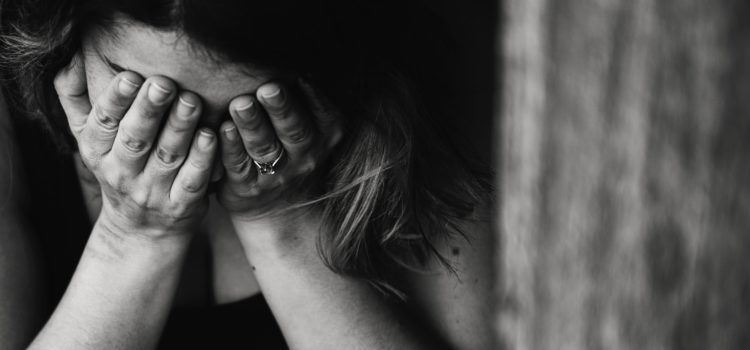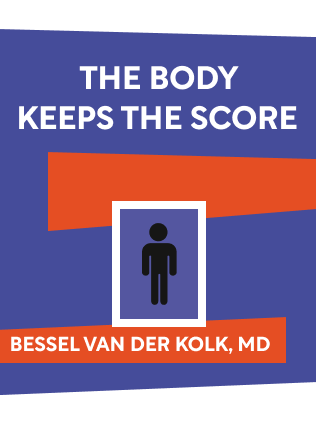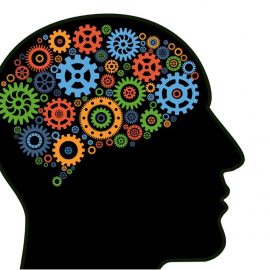

This article is an excerpt from the Shortform book guide to "The Body Keeps The Score" by Bessel van der Kolk. Shortform has the world's best summaries and analyses of books you should be reading.
Like this article? Sign up for a free trial here .
How are trauma and shame connected? Why do people who experience trauma feel shame and isolation?
Trauma and shame are commonly linked. People who experience trauma often also experience shame and isolation for many reasons. Isolation, trauma and shame are all interconnected when dealing with PTSD.
Read more about isolation, trauma and shame and how they’re all connected.
Isolation, Trauma and Shame
One of the lasting impacts of trauma is an inability to develop intimate relationships with others: After experiencing such suffering at the hands of another person, how can you trust anyone again? These feelings of trauma and isolation can make it difficult to cope.
Additionally, how can anyone possibly understand how you feel, with the exception of other trauma survivors? This is why people like first responders and veterans form such close bonds with coworkers and comrades; these relationships are often closer than survivors’ relationships with their spouses and children, because they don’t share those experiences and understanding.
What’s more, many trauma survivors feel paralyzing shame about their own behavior during a traumatic episode furthering the feelings of trauma and isolation. In some cases, the survivor may have lashed out in response to the trauma and subsequently feels shame about it; for instance, the day after Tom’s platoon was ambushed in Vietnam, he killed children and raped women in a nearby village in a vengeful rage. The trauma and shame of his actions later haunted him mercilessly.
In other cases, trauma survivors feel ashamed about their behavior — regardless of any rational reality of whether they could’ve acted any differently. This is often the case with children who submit to their abusers and even maintain relationships with them later in life (e.g. as relatives or family friends).
One of van der Kolk’s colleagues, Sarah Haley, wrote about trauma survivors’ trauma shame in an article titled “When the Patient Reports Atrocities,” and her work was a major factor in the creation of the PTSD diagnosis. Haley wrote that as hard as it is for trauma survivors to come to terms with the suffering they faced at the hands of others, many are even more haunted by what they did or didn’t do in the event — whether they were scared, dependent, enraged, or excited. Trauma and shame or commonly linked.
Trauma Survivors Suffer Emotional Numbness
Trauma and shame can also lead to emotional numbness. Flashbacks are so intense that trauma sufferers try to avoid them at all costs; they may compulsively go to the gym and push themselves physically, take drugs or drink alcohol to dull the memories, or put themselves in dangerous situations so they can feel some sense of control over chaos.
However, trauma survivors can never fully escape the flashbacks until they’ve healed from their trauma, and the more they experience flashbacks the more they remain stuck in that event; the more they’re stuck in the past, the less able they are to experience the present, and they tend to go through life feeling numb and as if they’re simply going through the motions.
As a result, some trauma survivors feel more alive and engaged when they are describing and essentially revisiting their trauma — as in when veterans share combat stories. This sharing may help ease the feelings of trauma and isolation.
Freud called the habit of either describing or recreating trauma as “the compulsion to repeat.” He believed that trauma survivors engage in these reenactments in an unconscious attempt to gain control over a situation that haunts them, in (unconscious) hopes of eventually reaching a resolution. However, there is no evidence to back up Freud’s theory, and in fact, repetition — even in therapy — leads to pain, self-hatred, and continued fixation on the trauma.

———End of Preview———
Like what you just read? Read the rest of the world's best book summary and analysis of Bessel van der Kolk's "The Body Keeps The Score" at Shortform .
Here's what you'll find in our full The Body Keeps The Score summary :
- How your past trauma might change your brain and body
- What you can do to help your brain and body heal
- Why some trauma survivors can't recognize themselves in the mirror






